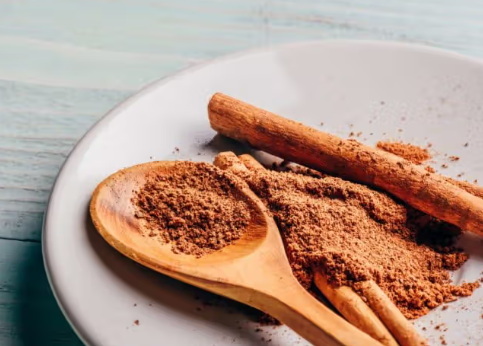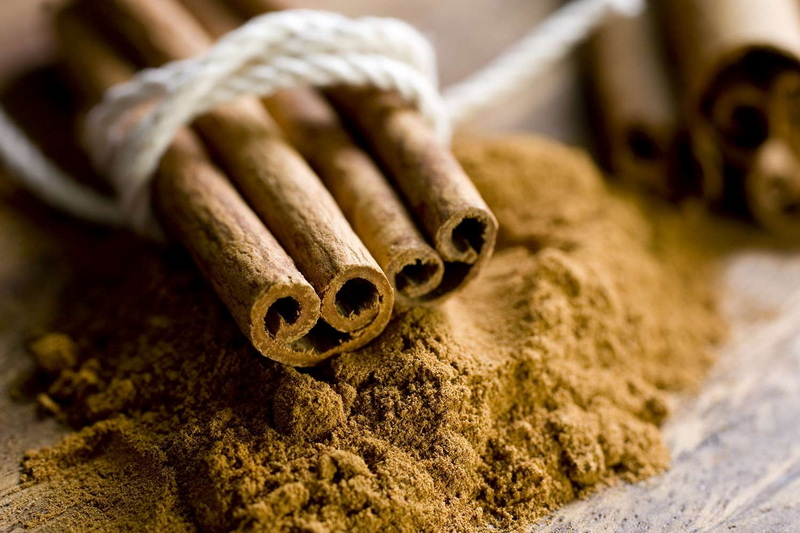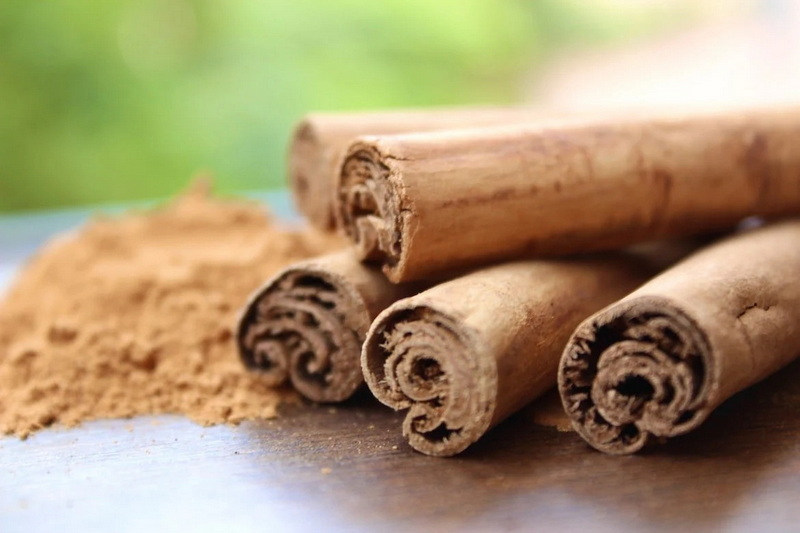Content Menu
● Introduction to Cinnamon Bark Extract
>> Phytochemicals in Cinnamon Bark
● Other Natural Remedies for Blood Sugar Control
● Comparison of Cinnamon Bark Extract with Other Remedies
>> Dosage and Efficacy
>> Mechanism of Action
● Clinical Evidence and Trials
>> Limitations and Future Directions
● Potential Interactions and Safety Considerations
>> Coumarin Content and Liver Safety
● Conclusion
● FAQs
>> 1. What are the main components of cinnamon bark extract that contribute to its antidiabetic effects?
>> 2. How does cinnamon bark extract compare to fenugreek in terms of blood sugar control?
>> 3. What are the potential side effects of consuming high doses of cinnamon bark extract?
>> 4. Can cinnamon bark extract be used alongside conventional diabetes medications?
>> 5. How does ginger compare to cinnamon in terms of reducing blood sugar levels?
● Citations:
Cinnamon bark extract has been widely studied for its potential benefits in managing blood sugar levels, particularly in the context of diabetes. This article will explore whether cinnamon bark extract offers better blood sugar control compared to other natural remedies.

Introduction to Cinnamon Bark Extract
Cinnamon is a spice derived from the bark of the Cinnamomum tree, with two main types being Cinnamomum verum (Ceylon cinnamon) and Cinnamomum cassia (Chinese cinnamon). The bark contains several bioactive compounds, including cinnamaldehyde, which is believed to have antidiabetic properties by enhancing insulin sensitivity and reducing glucose levels in the blood.
Phytochemicals in Cinnamon Bark
Cinnamon bark is rich in phytochemicals such as flavonoids, phenolics, saponins, triterpenoids, steroids, and alkaloids. These compounds contribute to its antidiabetic effects by stimulating glucose uptake in cells and improving insulin signaling pathways.
Other Natural Remedies for Blood Sugar Control
Several other natural remedies have been studied for their potential to manage blood sugar levels:
- Ginger: Known for its anti-inflammatory properties, ginger can help regulate insulin and reduce blood sugar levels. It contains compounds like gingerol and shogaol, which have been shown to improve insulin sensitivity and reduce inflammation in the body.
- Bitter Gourd: Contains compounds like charatin and momordicin, which have been shown to lower blood glucose levels by inhibiting glucose absorption in the gut and enhancing insulin secretion.
- Jamun: Known for its hypoglycemic properties, jamun can help reduce blood sugar levels. The fruit, seeds, and leaves of the jamun tree are used in traditional medicine to manage diabetes.
- Fenugreek: Improves glucose tolerance and lowers blood sugar levels by slowing down carbohydrate digestion and absorption. Fenugreek seeds are rich in soluble fiber, which helps regulate blood sugar spikes.
Comparison of Cinnamon Bark Extract with Other Remedies
While cinnamon bark extract has shown promising results in reducing blood glucose levels, its effectiveness compared to other natural remedies can vary based on several factors, including dosage and individual response.
Dosage and Efficacy
Cinnamon bark extract has been effective at doses ranging from 100 mg/kg to 200 mg/kg in animal studies, with higher doses potentially leading to adverse effects like hepatotoxicity due to the presence of coumarin. In contrast, ginger and fenugreek can be consumed in various forms and dosages without significant adverse effects reported at typical consumption levels.
Mechanism of Action
Cinnamon enhances insulin sensitivity and glucose uptake by modulating insulin receptor signaling pathways. Ginger and fenugreek also improve insulin sensitivity but through different mechanisms, such as reducing inflammation and slowing carbohydrate digestion.

Clinical Evidence and Trials
Several clinical trials have investigated the effects of cinnamon bark extract on blood sugar control. A meta-analysis of clinical trials found that cinnamon supplementation significantly reduced fasting blood glucose levels in patients with type 2 diabetes. However, the evidence is not entirely consistent, and more research is needed to establish its long-term efficacy and safety.
Limitations and Future Directions
Despite the promising results, there are limitations to the current research. Many studies have small sample sizes, and there is variability in the dosage and duration of cinnamon supplementation. Future studies should focus on larger cohorts and standardized dosing regimens to provide more conclusive evidence.
Potential Interactions and Safety Considerations
Cinnamon bark extract may interact with certain medications, such as blood thinners, due to its coumarin content. It is essential to consult with a healthcare provider before using cinnamon as a supplement, especially if you are taking other medications or have underlying health conditions.
Coumarin Content and Liver Safety
High doses of cinnamon bark extract can lead to hepatotoxicity due to the presence of coumarin compounds, which may cause liver damage if consumed excessively. It is crucial to monitor liver function when using cinnamon supplements, especially at high doses.
Conclusion
Cinnamon bark extract offers significant benefits in blood sugar control, particularly due to its ability to enhance insulin sensitivity and reduce glucose levels. However, its effectiveness compared to other natural remedies like ginger, bitter gourd, jamun, and fenugreek can vary based on individual responses and dosages. Each remedy has unique mechanisms of action and potential benefits, making them valuable options for managing blood sugar levels naturally.

FAQs
1. What are the main components of cinnamon bark extract that contribute to its antidiabetic effects?
Cinnamon bark extract contains several bioactive compounds, including cinnamaldehyde, flavonoids, and phenolics, which contribute to its antidiabetic properties by enhancing insulin sensitivity and glucose uptake.
2. How does cinnamon bark extract compare to fenugreek in terms of blood sugar control?
Both cinnamon bark extract and fenugreek have been shown to lower blood sugar levels, but they work through different mechanisms. Cinnamon enhances insulin sensitivity, while fenugreek slows down carbohydrate digestion.
3. What are the potential side effects of consuming high doses of cinnamon bark extract?
High doses of cinnamon bark extract can lead to hepatotoxicity due to the presence of coumarin compounds, which may cause liver damage if consumed excessively.
4. Can cinnamon bark extract be used alongside conventional diabetes medications?
Cinnamon bark extract may be used as an adjunct therapy to conventional diabetes medications, but it is crucial to consult with a healthcare provider to avoid any potential interactions.
5. How does ginger compare to cinnamon in terms of reducing blood sugar levels?
Both ginger and cinnamon have been shown to reduce blood sugar levels, but ginger's effects are more related to its anti-inflammatory properties and regulation of insulin, whereas cinnamon primarily enhances insulin sensitivity.
Citations:
[1] https://www.ijrrjournal.com/IJRR_Vol.11_Issue.1_Jan2024/IJRR75.pdf
[2] https://timesofindia.indiatimes.com/life-style/food-news/herbal-remedies-to-naturally-bring-down-your-blood-sugar-level/photostory/67974000.cms
[3] https://pmc.ncbi.nlm.nih.gov/articles/PMC10494518/
[4] https://oamjms.eu/index.php/mjms/article/download/9462/7290/86044
[5] https://www.webmd.com/diet/how-to-lower-your-blood-sugar
[6] https://pmc.ncbi.nlm.nih.gov/articles/PMC5085873/
[7] https://pmc.ncbi.nlm.nih.gov/articles/PMC5067830/
[8] https://pmc.ncbi.nlm.nih.gov/articles/PMC6035310/






























